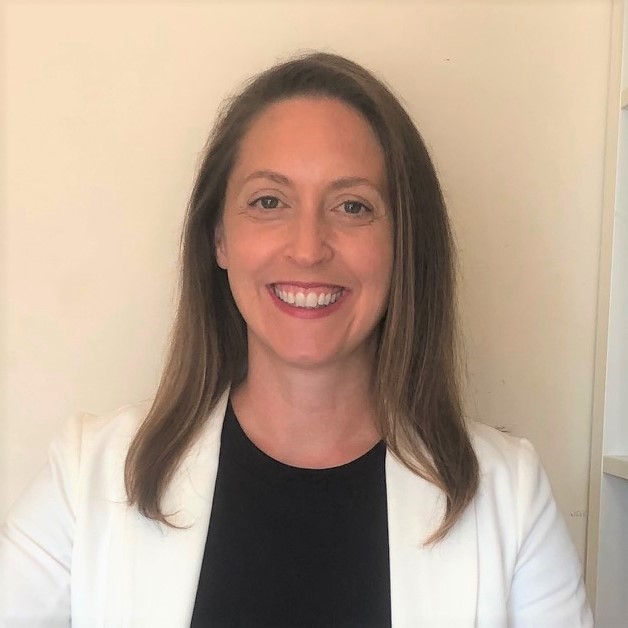Our Services
Adult Individual Counselling
Individual therapy / counselling involves working with one of our trained psychologists in a safe, caring, and confidential environment to explore your beliefs, behaviours, and feelings towards challenging experiences, memories, or aspects of your life that you would like to change. It can involve setting personal goals that we work towards that are related to your relationship, work, family, or home life.
How to get started:
Your first step is to call our office or go online to our booking system and schedule a time for us to meet. Initial sessions are usually an hour long but we have often booked 1.5 hour or 2 hour sessions to meet the needs of our clients who find they need that extra time. In the initial session, it’s very important to our psychologists that you feel comfortable and safe to talk about the issues that are on your mind. Every psychologist works a little bit differently from each other, but we all share the same desire to connect with you, work collaboratively with you around your goals, and ensure that you always feel cared for.
Who can benefit from Individual Counselling?
Just about anyone can benefit. No problem is too big or small. Listed below are just a few examples of some common concerns:
- Symptoms of stress, anxiety, and depression
- Adjustment issues such as homesickness, academic problems, and long-distance relationships
- Interpersonal difficulties, including family problems, relationship, assertiveness, and other issues
- Bereavement and grief related to the loss of a loved one
- Questions/confusion about identity, self-image, sexuality, gender, or religious concerns
- Concerns about body image, food, eating, or weight, as well as treatment for eating disorders
- Experience with sexual assault, relationship violence, stalking, abuse, or other trauma
- Thoughts of suicide, death, or hurting others
- Behaviours that can be harmful to you, like drug or alcohol abuse or cutting
When to seek Individual Counselling:
Our psychologists are trained to intervene or provide support for a countless number of issues, far too many to list in any comprehensive way. While counselling might be helpful in numerous situations, there are some conditions in which we would strongly encourage you to seek counselling services:
- You are unhappy on most days or feel a sense of hopelessness
- You worry excessively or are constantly on edge
- You are unable to concentrate on your activities
- You are unable to sleep at night or constantly feel tired
- You have experienced a change in your appetite or your weight
- You have experienced a loss (e.g., a relationship breakup, a parent’s death)
- You have increased your use of alcohol or other drugs (including cigarettes)
- You feel overwhelmed by what is going on in your life
- You are having thoughts about hurting yourself or someone else
(adopted from http://www.familycounselorservices.com/adolescent_counselling.html)
Our Adult Individual Counsellors
Registration Form
Many of our clients prefer to fill out our Registration forms before they arrive for their first session. Please click on the link below to download the Registration / Intake form in order to print it out and fill it in. You will need Adobe Reader to view this document.
Adolescent Counselling
The pre-teen and teenage years can be especially difficult for both child and parents. We provide professional adolescent counselling to help your adolescent navigate through this rough time. During the adolescent, teenager years between 13 and 19, young people experience physical growth, mental development and emotional changes. As a parent your goal during this time of life is to help your teen become an independent responsible adult.
The pre-teen and teenager years can be stressful on everyone involved. While teenagers are no longer children, they are not yet adults. They may be confused about how they are and how they should act. Chances are your teen will make it through adolescence just fine, but they need your help. Teenager traits like self-centeredness, idealism, being critical of self and others, rebellion and deeply invested in their friends are traits that are unpleasant at times, but they are normal. And while challenge, and even some conflict, is a normal part of this stage of development, outside support, encouragement and perspective can help.
Who can benefit from Adolescent Counselling?
Children, just like adults, experience stress during our life journey. Some common stressors for children include school and family issues. A school related stress experience may include excessive or difficult homework, test anxiety, peer pressure, bullying, and learning difficulties. A family related stress experience may include parental arguing, divorce, moving homes, new sibling, major illness, and transitions.
Children, just like adults, can participate in and benefit from adolescent counselling. Child and adolescent counselling can help children and adolescents learn how to identify causes of their distress, develop their skills in asking for help and expressing emotions, and improve their problem-solving abilities.
Our approach to child and adolescent counselling considers the physical, social, economic, mental environment. We seek to identify and develop strength and growth areas, while reducing distress and increasing coping skills. We incorporate others in the child and adolescent counselling process depending on the nature of the problem and the child’s environmental resources. Others may include family, parent, grandparents, siblings, teachers, and caregivers.
If you notice a change in your child’s behaviour such as inattention, arguing, withdrawing or depressed, angry, worried, stress-related emotions and think the child or adolescent may need help, child or adolescent counselling may be a good resource.
When to seek Adolescent Counselling:
While it is true that adolescents seldom enter counselling on their own, the adolescents are not really any more reluctant to seek help than their parents. Adolescents sometimes cannot see what they are doing to themselves to make their life difficult because they have not had the life experience. Life experience, in sufficient quantities, helps us see what is not working, even if we do not always know what to do to fix it. Most adolescents do not have enough life experience to see their role in the problem so they assume the problem must be outside of themselves and they expect everyone else to change.
Our adolescent psychologists and counsellors have experience working specifically with the psychological, mental and emotional changes of adolescences and related adolescent issues. Consider getting your pre-teen or teenager the help that they deserve which can result in healing and support that can serve them for the rest of their lives.
(adopted from http://www.familycounselorservices.com/adolescent_counseling.html)
Our Adolescent Counsellors
Child Counselling
Kids, like adults, can benefit from therapy. Therapy can help kids develop problem-solving skills and also teach them the value of seeking help. Therapists can help kids and families cope with stress and a variety of emotional and behavioural issues.
Many kids need help dealing with school stress, such as homework, test anxiety, bullying, or peer pressure. Others need help to discuss their feelings about family issues, particularly if there’s a major transition, such as a divorce, move, or serious illness.
Should My Child See a Therapist?
Significant life events — such as the death of a family member, friend, or pet; divorce or a move; abuse; trauma; a parent leaving on military deployment or long work trips; or a major illness in the family — can cause stress that might lead to problems with behaviour, mood, sleep, appetite, and academic or social functioning.
In some cases, it’s not as clear what’s caused a child to suddenly seem withdrawn, worried, stressed, sulky, or tearful. But if you feel your child might have an emotional or behavioural problem or needs help coping with a difficult life event, trust your instincts.
Signs that a child may benefit from seeing a psychologist or licensed therapist include:
- developmental delay in speech, language, or toilet training
- learning or attention problems (such as ADHD)
- behavioural problems (such as excessive anger, acting out, bedwetting or eating disorders)
- a significant drop in grades, particularly if your child normally maintains high grades
- episodes of sadness, tearfulness, or depression
- social withdrawal or isolation
- being the victim of bullying or bullying other children
- decreased interest in previously enjoyed activities
- overly aggressive behaviour (such as biting, kicking, or hitting)
- sudden changes in appetite (particularly in adolescents)
- insomnia or increased sleepiness
- excessive school absenteeism or tardiness
- mood swings (e.g., happy one minute, upset the next)
- development of or an increase in physical complaints (such as headache, stomach ache, or not feeling well) despite a normal physical exam by your doctor
- management of a serious, acute, or chronic illness
- signs of alcohol, drug, or other substance use (such as solvents or prescription drug abuse)
- problems in transitions (following separation, divorce, or relocation)
- bereavement issues
- custody evaluations
- therapy following sexual, physical, or emotional abuse or other traumatic events
Talk to Caregivers, Teachers, and the Doctor
It’s also helpful to speak to caregivers and teachers who interact regularly with your child. Is your child paying attention in class and turning in assignments on time? What’s his or her behaviour like at recess and with peers? Gather as much information as possible to determine the best course of action.
Discuss your concerns with your child’s doctor, who can offer perspective and evaluate your child to rule out any medical conditions that could be having an effect. The doctor also may be able to refer you to a qualified therapist for the help your child needs.
Preparing for the First Visit
You may be concerned that your child will become upset when told of an upcoming visit with a therapist. Although this is sometimes the case, it’s essential to be honest about the session and why your child (or family) will be going. The issue will come up during the session, but it’s important for you to prepare your child for it.
Explain to young kids that this type of visit to the doctor doesn’t involve a physical exam or shots. You may also want to stress that this type of doctor talks and plays with kids and families to help them solve problems and feel better. Kids might feel reassured to learn that the therapist will be helping the parents and other family members too.
Older kids and teens may be reassured to hear that anything they say to the therapist is confidential and cannot be shared with anyone else, including parents or other doctors, without their permission — the exception is if they indicate that they’re having thoughts of suicide or otherwise hurting themselves or others.
Giving kids this kind of information before the first appointment can help set the tone, prevent your child from feeling singled out or isolated, and provide reassurance that the family will be working together on the problem.
Providing Additional Support
While your child copes with emotional issues, be there to listen, care, and offer support without judgment. Patience is critical, too, as many young children are unable to verbalize their fears and emotions.
Try to set aside some time to discuss your child’s worries or concerns. To minimize distractions, turn off the TV and let voice mail answer your phone calls. This will let your child know that he or she is your first priority.
Other ways to communicate openly and problem-solve include:
- Talk openly and as frequently with your child as you can.
- Show love and affection to your child, especially during troubled times.
- Set a good example by taking care of your own physical and emotional needs.
- Enlist the support of your partner, immediate family members, your child’s doctor, and teachers.
- Improve communication at home by having family meetings that end with a fun activity (e.g., playing a game, making ice-cream sundaes).
- No matter how hard it is, set limits on inappropriate or problematic behaviors. Ask the therapist for some strategies to encourage your child’s cooperation.
- Communicate frequently with the therapist.
- Be open to all types of feedback from your child and from the therapist.
- Respect the relationship between your child and the therapist. If you feel threatened by it, discuss this with the therapist (it’s nothing to be embarrassed about).
- Enjoy favourite activities or hobbies with your child.
By recognizing problems and seeking help early on, you can help your child — and your entire family — move through the tough times toward happier, healthier times ahead.
(Adopted from: http://kidshealth.org/en/parents/finding-therapist.html#)
Our Child Counsellors
Couple Counselling
The aim of couple counselling is to help a couple deal appropriately with their immediate problems and to learn better ways of relating in general.
Couple counselling is based on the premise that individuals and their problems are best handled within the context of the couple’s relationship. Typically, both partners in the relationship attend the counselling session to discuss the couple’s specific issues. Couple counselling is a useful modality of help for couples who are experiencing difficulties such as repetitive arguments, feelings of distance or emptiness in the relationship, pervasive feelings of anger, resentment and or dissatisfaction or lack of interest in affection or in a physical relationship with one another.
Couples counselling helps couples — married or not — understand and resolve conflicts and improve their relationship. Couple counselling gives couples the tools to communicate better, negotiate differences, problem solve and even argue in a healthier way.
Couples counselling can be short term. You may need only a few sessions to help you weather a crisis. Illness, infidelity, sex, anger, communication problems — all can contribute to distress in marriages or other relationships. Couples counselling can help resolve conflicts and heal wounds.
Who can benefit from Couple Counselling?
Your relationship is on the rocks, and you both know it. But you aren’t sure how to fix things It may be time for couple counselling. Couple counselling can help you rebuild your relationship. Or decide that you’ll both be better off if you split up. Either way, couple counselling can help you understand your relationship better and make well-thought-out decisions. Couple counselling can help you:
- Gain a better understanding of each other’s wants and needs
- Increase mutual respect
- Resolve issues in a new relationship,
- Facilitate and enhance communication
- Revive the spark in an established partnership,
- More readily experience and express love and happiness
- Prevent an impending divorce
- End a relationship on amicable terms
When to seek Couple Counselling:
Couples today feel increasingly isolated and are expected to manage their lives and families without the community supports that in the past were a primary resource in raising children and meeting family needs. Couples in our present culture are less bound by family traditions and are freer than ever before to develop relationships unlike those of the families that they were raised in.
With the aid of a qualified Couple Counsellor, couples can bring peace, stability and communication back into their relationship thus affecting their lives and the lives of those most impacted by them and their relationship.
In an article published in The Journal of Marital and Family Therapy, clients of 526 couple counsellors were surveyed, and 91% of the clients said they were satisfied with the amount of help they received. Unfortunately, most unhappy couples don’t start couple counselling as early as they should. They tell themselves that they are too busy, or they don’t want to spend the money – but how much is a happy relationship worth? Studies show that the average couple waits six to seven years beyond the time the relationship starts to unravel before they decide to seek couple counselling.
(adopted from http://www.familycounselorservices.com/couple_counseling.html)
Our Couple Counsellors
Richmond Counselling is ready to help you find greater happiness and wellness
Book an appointment with one of our psychologists or counsellors today









